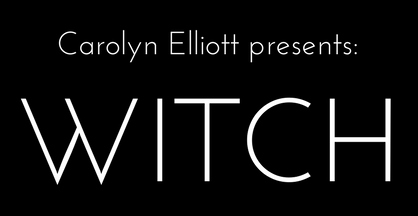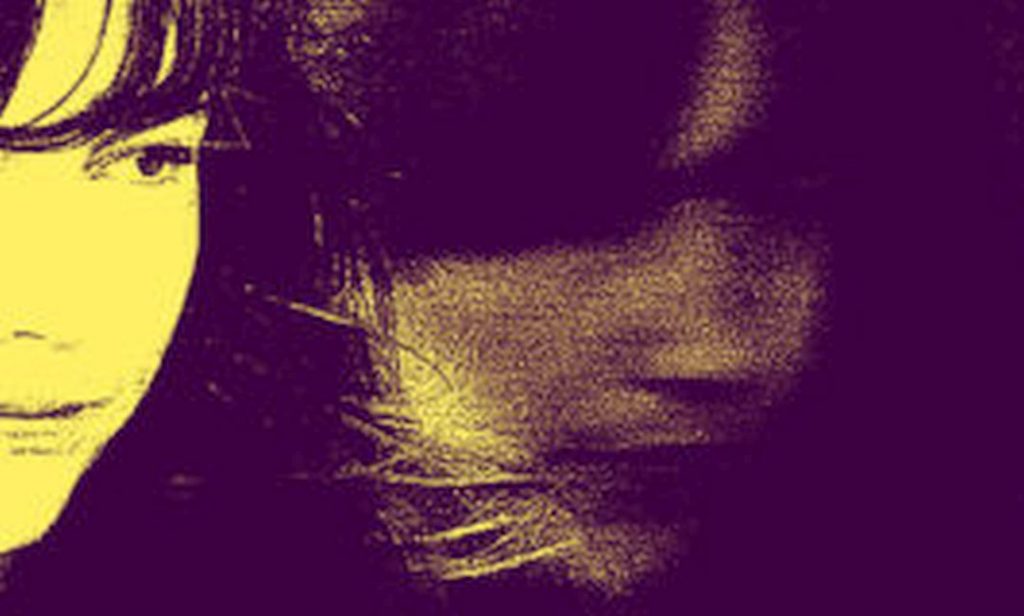by Kela Parker
Going deep within darkness holds the greatest potential for light” –Ariel Spilsbury & Michael Bryner
The shadow is whatever we obsess about, judge, and/or reject in others. It lurks there behind our eyes, perfectly projecting all the disowned parts of ourselves onto the screen of Other. The unrecognized shadow hooks us into all kinds of drama interpersonally, and all kinds of messes socio-politically.
The only way to work with the shadow is to engage it face-forward, with curiosity and humility.
Rather than running away or staying in the trance of only seeing our trouble in others, we have to ask, “What is this about? What do I need to look at?”
We should be getting wise to our shadow not only because it is the responsible thing to do as a human being.
The shadow is also a source of personal power and freedom, if we work with it consciously. As Carolyn Elliott says on WITCH in Shadow Power, as we embrace, and even get off on, the shadow, we can transmute its energy into something active that can work for us, rather than against us.
In my case, a while back I kept finding myself obsessively judging a friend. No matter how much I tried to redirect my thoughts towards kindness, love, and light and all that, my mind was throwing shade.
To make things even more hellish, I also started judging myself for all the obsessing. How fun!
One night I had a dream about that person (luckily I don’t remember it, but I’m sure it was embarrassing). Soon after, they happened to mention they had dreamt of me.
Our shadows were dancing.
https://soundcloud.com/kela-parker-23818127/is-it-real
You’ve got that thing I think I need
What I can sense but can’t retrieve
What I seek, I don’t know
Hesitate, I’m not sure
Only in dreams do I know
And I’m living what I’m asking for
What I need, you don’t know
What I see, is much more, but
Is it real, this time
Or all in my mind…
Whatever we most want to push away offers a thread leading to something authentic in us that needs to be listened to.
If we don’t listen, our egos only get stronger, and our psyches more split.
In my situation with my friend, the more I looked at it, the more I realized the judgments towards my friend were simply helping me uncover, and slough off, a layer of undeserving shame about something I wanted. (The shadow deals big time in shame; in fact shame is probably its #1 currency).
I didn’t feel I deserved what my friend seemed to have, so my judging mind couldn’t stand it that my friend seemed to feel entitled and allowed to have it.
From what in me do I run
It’s gonna show before too long
What I feel, is it true
Is it real
Is it real, this time
Or only in my mind
I cannot see the distance
From here to the beginning
Held by the shape of my wanting
In hollows that only ring silent
The happy ending here is that I eventually got past my inner melodrama, when I was finally able to realize that my friend actually had incredibly kind and supportive things to say about me–around exactly that thing I was jealous of them about.
It was almost like my ego had set it up so that I couldn’t let in any positive energy around something it had me pinned under.
In fact, it was exactly that.
When we are in fear and lack, we are usually deeply attached to the things that drive us crazy.
The ego chokeholds us in the void, and then makes us feel very indignant and self-righteous about being there—strongly committed to staying in our own misery. It’s a total scam.
But we don’t want to be proven wrong, we don’t want to let go of our grievances. It sounds dumb, but that’s how the ego works. And our culture doesn’t exactly help us stick to a self-aware path around this stuff.
In especially ego-driven moments (as during election years, for convenient example) the repressed shadow, and the ego defenses that are fueled by it, have a field day. When we’re being grown-ups, we all know no one is ever 100% right or wrong—but politics have a way of sending us all into toddler-town.
This election year, though, we also have the collective rise in awareness of many marginalized groups, alongside a gruesome airing out of the deep-seated bigotry that is also part of US historical psychology.
Thanks in large part to social media we are (finally) having more compelling, widespread cultural discussions of oppressive dynamics such as misogyny, sexual abuse and gender oppression, racial injustice, the abuses of native peoples, and the issue of land/water use (the feminine).
We are also being asked to contend with the alienating effects of class disparity and lack of equal access to resources, rearing its head in the form of unbridled hate. But icky and disheartening as it is, it does not serve us to turn away from the worst aspects of our social structure, or brand others as unforgivable villains.
We all are a part of the system that created this reality.
This is the collective shadow of our country coming to the fore.
As many have observed recently, this is not a sudden worsening of anything that wasn’t already there; this is a collective revealing of all that was dark and murky beneath the surface, coming to light.
Feminists, people of color, and queers have been working on this stuff, in the cultural margins, for decades.
As the dialogue comes out of the periphery and into the mainstream in a more influential way than ever before, we are constantly being reminded that it is necessary to confront the shadows in order to fully transcend them. Repression never works.
Yes, what is there can be scary. But it helps to remember that, just as with our personal demons, we are already familiar with the worst of it; we are already in the trance of whatever we are pushing against. That’s why it has us.
While what the shadow has to show us about our collective past is often uncomfortable and frightening, there is also incredible power there.
Power for good.
Speaking out is a process of owning and developing our power, and a crucial part of dismantling patriarchy.
Speaking up can be tricky because if the act of speaking out has a lot of ego and identity in it, we can inadvertently stay entrenched on the side of victimhood and powerlessness.
When we construct our female identity, for example, mainly through the lens of gender oppression, we ultimately only stay bound up in patriarchal reality. It is just as important to claim your own relationship to the feminine from a positive place, as it is to speak out against injustice against women.
But on the other hand, the light is flimsy and weak if we haven’t confronted the dark.
For me, though my conscious mind has always seen things through a feminist lens, my unconscious has often still carried the albatross of my personal traumas and shame, and all the places where I had lost my real self in false messaging about being female.
The shadow still held a lot of my voice within its recesses, where the energy remained trapped, folded in on itself—and of course, projected outward onto other women.
Like many women, I have often unconsciously held back my voice in fear of being branded a “bad bitch,” the kind Yoko Ono embraces and gives no fucks about on I’m A Witch.
But each time I notice the talons of self-censorship trying to sneak up and snatch my voice away, when I go ahead and speak, I feel freedom, revelation, and empowerment.
Whatever it is women are supposed to fear when we use our voices to speak truth to patriarchy—being branded a haggardly old troll, no one wanting to date you, whatever it is—that is all false.
Fear creates a dead weight that compounds and gets heavier each time we don’t speak up. All of that creates a false self, a dead skin we are shedding on the way to our truth. When we are willing to risk revealing the vulnerability and realness of ourselves, we naturally find our real self.
That is what working with the shadow is all about. Realness.
And each time we get real with each other, it strengthens our faith not only in our own process, but also in the intelligence and compassion of Other. When we can see and hold space with the realness of Other, when they are no longer a one-dimensional projection of our fears and inner demons, the world changes.
Let me repeat that: When the Other becomes real, the world changes.
When we decide to stop all the noise and turn our conscious minds towards shadow work, we unlock reservoirs of energy. And though the ego can be intimidating when it puffs up its chest and throws its weight around, it is really no match for the superpower of Love.
When we fully own the damages and bear witness to the innumerable wounds of this system, we get brave.
We also unlock our own channel to sweet, sweet Love.
There is no magical Other, no perfect politician, no lovely lover, no triumphant perfect experience coming from out there that will change any of this. (But please, please, still VOTE—and vote strategically, with the welfare of others who have less privilege than you in mind).
The best weapon we have is our own awareness, and our ability to locate unconditional Love within ourselves—and that includes unconditional acceptance of everything buried in our shadow. When we make Love priority #1, when we start and return to Love as our operating home base, we are stronger than we can imagine.
About the Author:
Merken
Merken

